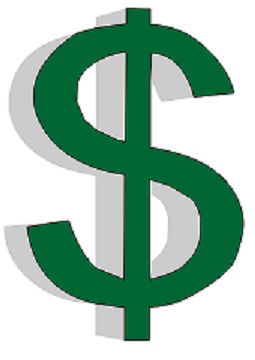I was the youngest son among eight siblings (5 boys, 3 girls). In my childhood in Taiwan, my family was relatively well off. That was right after World War II. There were food shortages after the war. But we were fortunate because we had a big farm and hired many farm workers. So, we had plenty to eat.
In 1949, when the Communist Party took over China, many refugees came to Taiwan from China. Because we had a big farm, my father took in many of these refugees, who became permanent guests. Many of them were intellectuals, or people with special talents or skills.
In later years, so that his children could have a better education, my father sold the farm and our family moved to a small city. There, he began to get into business, by providing consultations including feng shui. Because he was very knowledgeable, people consulted him on all sorts of things.
Being a very open-hearted and generous man, my father would always welcome many guests (mostly relatives from the countryside) who would come to visit, and stay for lunch and dinner. I was very close to my father, as Chinese tend to dote on their youngest sons. And I spent a lot of time with him when I was not in school. I remember these times fondly. Up to this time, our family had a very comfortable living.
Later though, my father’s business life became a rollercoaster. All the ups and downs naturally affected our living. Even though he was very knowledgeable about herbs, for a long while he could not cure his own sickness. These were very trying times but he kept things close to his chest.
When I turned 18, my father told me: “You are an adult now, and you should be responsible for yourself.” After that, he hardly ever asked me anything about what I was doing. Even if I stayed up very late at a classmate’s house, he did not worry, knowing that I would not do anything I shouldn’t. (Remember, at that time we did not have telephones, and certainly not cell phones.) I never disappointed him.
One day when I was 21, in my second year of college, my father took out his private reserve, a nice home-made rice wine, and invited me to have a drink with him. And then he told me something I have never forgotten.
He said, “Soon you will leave school and enter society. You will be involved with all kinds of people, in a social circle far larger than just your brothers, sisters and relatives, classmates and friends. You will know colleagues and business partners. You will be involved in many kinds of relationships. How can you know the genuineness and depth of the relationship? One day you might be surprised to find that your best friend, lover, or business partner is not as truthful as you thought. You might find you have been betrayed; you might be very disappointed, and even get angry. How can you know beforehand whether people are truthful, dependable, shallow or deep? The way to find out is through money. When there is money involved, you will know.
What people are most attached to is money. When money is involved, people reveal the truth of their values and their relationship with you. Whether you ask someone for help, or whether you have money issues with someone, you will find out the truth.
When you are in real need and ask for help, you will find all kinds of responses. Some friends may be very rich but avoid you; some may be not so well off, but go out of their way to help you. A lover may stick with you for a long time or exhaust their loyalty after a while.
This is not just among friends. It happens between husband and wife, among brothers and sisters, parents and children, relatives, and among business partners. It is always easy to find examples of children fighting bitterly over an inheritance, partners fighting for a better share of profit, dear lovers saying goodbye when one of the lover’s financial status changes. People you have helped might go out of their way to help you; others may no longer stop by. Money is the best test for the truth of a relationship.”
I listened very attentively and understood this must be from his rollercoaster life experience. But what has left an impression on me most was his second piece of advice:
“Use money to test relationships, to find out what is real, and what to expect. So you will not be surprised or disappointed. But don’t take it any further: don’t make unnecessary judgments. Whether people are generous or stingy, sympathetic or unsympathetic, supportive or not, just take this as a way of knowing who they are and how they react in the situation, without false expectations. Everybody walks on his own path of development. Sometimes you may wonder why a person who is well-off cannot come forward to help. Some people may be rich in money but not rich in heart. Get to know people, treat people the way they are. Do not be surprised by other people’s actions. When you do not have false expectations, you will not be disappointed.”
My father was a great person, a great father. Of all the things I learned from him – feng shui, herbal medicine, energy work, face reading and so on — this is the advice I remember most.


Echo what in your article: money is something; but isn’t everything…
you are right
Echo what is in your article: money is something; but isn’t everything…
Thanks.
Thank you Master! I like this text so much. Best regards.
Thanks.
This is an amazing post, very simply put, and deep. First and foremost I looked at myself and found myself wanting. Then I looked at my son, who is sweet, cheerful, and generous. I agree with what you have written.
Thanks